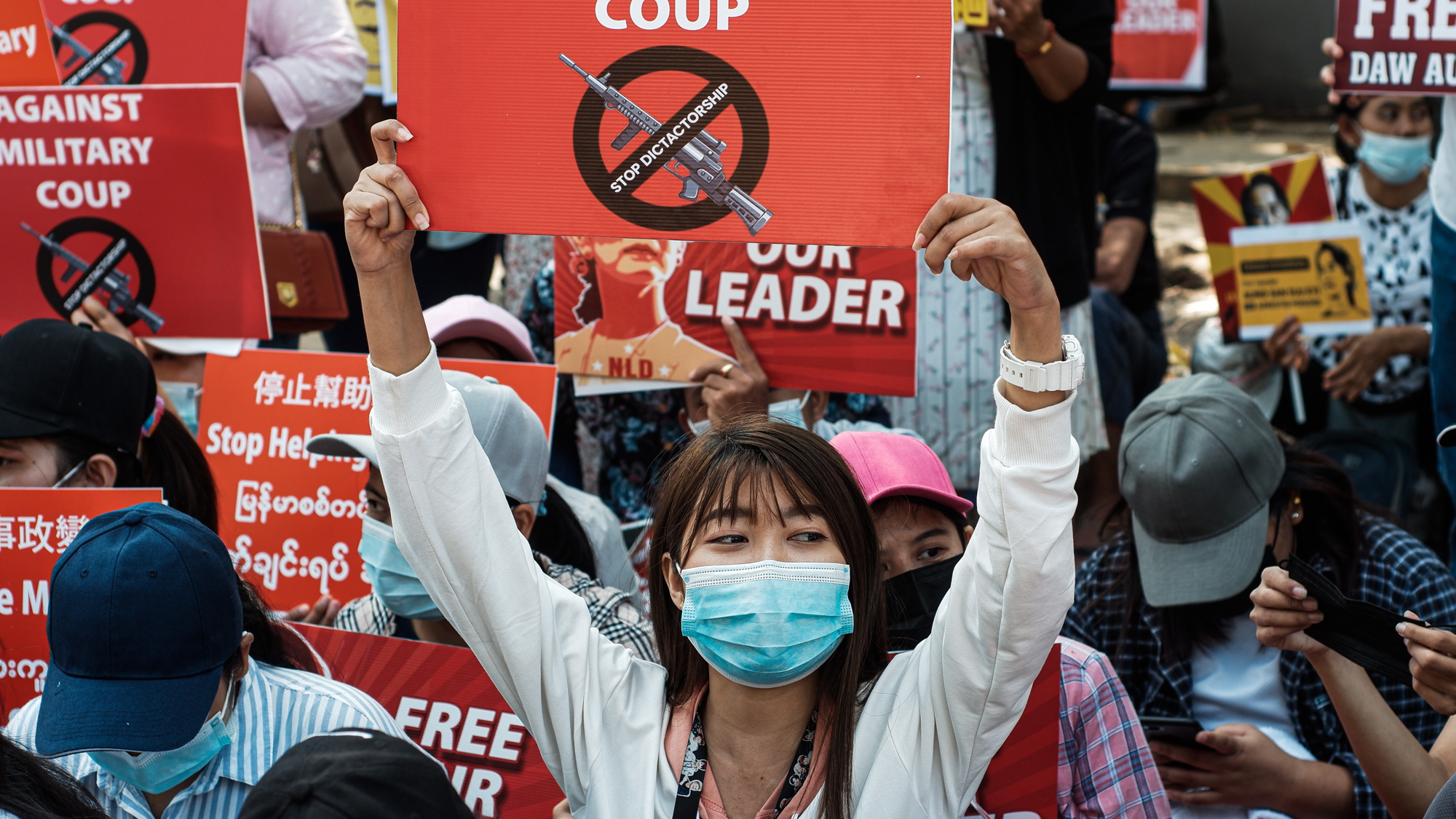Imposition of Martial Law in several areas of Myanmar subjects civilians to trial by military tribunals, a dangerous escalation of the military’s repression of peaceful protests, said the ICJ today.
“Use of martial law marks the return to the dark days of completely arbitrary military rule in Myanmar. It effectively removes all protections for protestors, leaving them at the mercy of unfair military tribunals.”
– Ian Seiderman, ICJ’s director of law and policy
On 14 March, the Myanmar military issued Martial Law Order 3/2021, covering a number of townships of different provinces in Myanmar. According to this order, military officials assume full authority from civilian officials, and civilians may be subjected to military tribunals for charges of 23 violations of the criminal code and other laws. The 23 crimes include many of the charges used most against peaceful protesters in the past month, including charges of ‘disrupting or hindering government employees and services’ and ‘spreading false news’ about the government, and ‘exciting disaffection towards the government.’
The Martial Law Order also assigns disproportionately severe sentences, including the death penalty and prison sentences with hard labor. Judgments of military tribunals are not subject to appeal, even if the death penalty is imposed.
“Martial law has been imposed in precisely the areas where the military have used unlawful and lethal force against peaceful protesters, and removes even the pretense of access to courts for the people whose rights have been violated systematically by the military, ” said Seiderman.
The ICJ’s detailed review of military courts has documented that they lack competence, independence and impartiality to prosecute civilians. International law provides that the jurisdiction of military tribunals must generally be restricted solely to specifically military offenses committed by military personnel.
“The military courts lack transparency, due process and judicial oversights. It leaves no possibility to appeal the sentences, including the death sentences that have been handed down by military generals, ” said Seiderman.
Since the military coup d’etat of February 1 and the declaration of a state of emergency, the military has enacted and amended legislation enabling ongoing gross human rights violations, including possible crimes against humanity. More than 200 people have been unlawfully killed, with 2,000 more injured as security forces have used excessive force to suppress peaceful protests.
Background
On 14 March, the military-appointed State Administration Council, in accordance with Article 419 of the Constitution, enacted Martial Law Order 1/2021, imposing martial law in a number of areas in Yangon. The affected areas were further expanded through two other orders issued on 15 March, Martial Law Order 2/2021 and 3/2021. These orders transfer all power to the Military Commander in those areas. All local administration bodies have been placed under martial law, effectively giving military full control of all judicial and administrative processes.
The Order 3/2021 in particular is divided into six main sections with the most concerning provisions in relation to the list of crimes to be heard by military tribunals, and the proscribed punishments.
Contact
Osama Motiwala, ICJ Asia-Pacific Communications Officer, e: osama.motiwala(a)icj.org
Mandira Sharma: ICJ Senior Legal Adviser, e: mandira.sharma(a)icj.org




